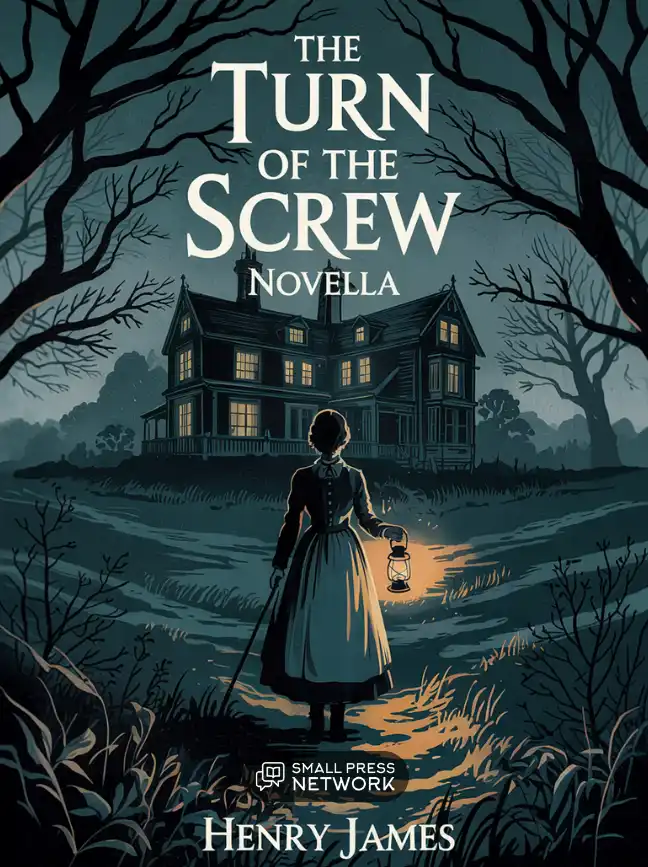Hamlet is not the finest of Shakespeare’s plays; Macbeth and, I believe, Othello are, on the whole, superior to it; but it is perhaps the one that contains the most striking examples of its most sublime beauties as well as its most shocking defects. Never has he revealed with more originality, depth, and dramatic effect the intimate state of a great soul; never, moreover, has he more abandoned himself to the terrible or burlesque fantasies of his imagination, and to that abundant intemperance of a mind in a hurry to spread its ideas without choosing them, and which delights in making them striking by a strong, ingenious, and unexpected expression, without any concern for their natural and pure form.
According to his custom, Shakspeare did not bother, in Hamlet , to invent or arrange his subject: he took the facts as he found them in the fabulous stories of the ancient history of Denmark, by Saxon the Grammarian, transformed into tragic stories by Belleforest, towards the middle of the sixteenth century, and immediately translated and made popular in England, not only with the public, but on the stage, for it seems certain that six or seven years before Shakspeare, in 1589, an English poet, named Thomas Kyd, had already made a tragedy of Hamlet. Here is the text of the historical novel in which, like a sculptor in a block of marble, Shakspeare carved his own.
“Fengon, having secretly won over men, one day rushed at a banquet on his brother Horwendille, who treacherously killed him, then cautiously purged himself before his subjects of such a detestable massacre. Before laying his bloody and parricidal hand on his brother, he had incestuously soiled the fraternal bed, abusing the wife of the one whose honor he pursued before he brought about his ruin….
“Emboldened by such impunity, Fengon still dared to mate in marriage with the one he had so abominably entertained during the life of the good Horwendille…. And this unfortunate woman, who had received the honor of being the wife of one of the most valiant and wise princes of the north, suffered to stoop to such vileness as to betray his faith, and what is worse, to marry the one who was the tyrant murderer of her legitimate husband….
“Geruthus having thus forgotten herself, Prince Amleth, seeing his life in danger, abandoned by his own mother, to deceive the wiles of the tyrant, pretended to be a fool with such cunning and subtlety that, pretending to have lost all sense, he covered up his designs and defended his safety and his life. Every day he was at the palace of the queen, who was more concerned with pleasing her harlot than with avenging her husband or restoring her son to his inheritance; he ran like a maniac, said nothing that did not reflect his transport of the senses and pure frenzy, and all his actions and gestures were only those of a man who is deprived of all reason and understanding; so that he served only as a pastime for the pages and stale courtiers who were in the entourage of his uncle and father-in-law… And yet he performed acts full of great significance, and responded so appropriately that a wise man would soon have judged from what spirit such a nice invention sprang…
“Amleth understood by this the danger he would be in if, in any way, he obeyed the cute caresses and pettiness of the young lady sent by his uncle. The prince, moved by the beauty of the girl, was further assured by her of treason, for she had loved him from his childhood, and would have been very sorry for his disaster….
“It is necessary,” said one of Fengon’s friends, “that the king pretend to go on some journey, and that Amleth be locked up alone with his mother in a room in which someone is hidden to hear their discussions and the plots of this foolish, wise and cunning companion…. He himself offered to be the spy, and witness of the son’s discussions with the mother…. The king took great pleasure in this invention….
“However, the advisor secretly entered the queen’s chamber and hid under some loudspeaker1 , a little before the son was locked up there with his mother. As he was cunning and cautious, as soon as he was inside the room, suspecting some betrayal or surprise, he continued in his foolish and foolish ways, jumped on this loudier where, sensing that there was some hidden case underneath, he immediately fell in with his sword…. Having thus discovered the ambush and punished the inventor of it, he returned to find the queen, who was weeping and lamenting; then having visited again all the corners of the room, seeing himself alone with her, he spoke to her very wisely in this manner:
“What treason is this, O most infamous of all those who have ever prostituted themselves at the will of some abominable lecher, that under the guise of a hidden tear, you cover up the most wicked act and the most detestable crime? What trust can I have in you who, disturbed by all impurity, go running with outstretched arms after this felon and traitor tyrant who is the murderer of my father, and incestuously caress the thief of the legitimate bed of your loyal husband?… Ah! Queen Gerutha, it is lust alone that has erased from your soul the memory of the valor and virtues of the good king, your husband and my father…. Do not be offended, I beg you, Madam, if, transported with grief, I speak to you so rigorously and if I respect you less than my duty; for, having destroyed the memory of the late king my father, you should not be surprised if I also go beyond the limits of all recognition….
Note 1: (back) Cover, quilt.
“Although the queen felt herself stung very closely, and Amleth touched her sharply the more she felt interested, she forgot all vexation she could have conceived at being thus bitterly scolded and reprimanded for the great joy that seized her, knowing the kindness of mind of her son. On the one hand, she dared not raise her eyes to look at him, remembering her fault, and on the other she would have willingly embraced her son for the wise admonitions he had made to her, and which were so effective that they instantly extinguished the flames of her lust….
“With him were sent to England two of Fengon’s faithful ministers, carrying letters engraved in wood, which bore the death of Amleth and commanded it to the Englishman. But the cunning Danish prince, while his companions slept, having visited the package and known the treachery of his uncle and the wickedness of the courtiers who were leading him to the slaughter, shaved off the letters mentioning his death, and instead engraved and chiseled on them a command to the Englishman to have his companions hanged and strangled….
“While his father was alive, Amleth had been indoctrinated in this science with which the evil spirit deceives men, and warned the prince of things already past. There would be much to discuss if this prince, through the violence of his melancholy, received such impressions that he guessed what no man had ever declared to him.”
Obviously, it is Hamlet who, in this story, struck and seduced Shakspeare. This young prince, mad by calculation, perhaps a little by nature, cunning and melancholic, ardent to avenge the death of his father and clever in watching for his own life, adored by the young girl sent to destroy him, the object of terror and yet always of the tenderness of his guilty mother, and, until the moment of the explosion, hidden and incomprehensible to both; this character full of passion, peril and mystery, versed in the occult sciences and to whom perhaps, “through the violence of his melancholy, the evil spirit makes guess what no man has ever declared to him;” what admirable data for Shakspeare, such a curious and profound scrutinizer of the obscure agitations of the human soul and destiny! Had he only painted, drawing them with the firmness and coloring them with the brilliance of his brush, this character and this situation as the chronicle gave them to him, he would have, without fail, produced a masterpiece.
But Shakespeare did much more: under his hand, Hamlet’s madness becomes something quite different from the obstinate premeditation or the melancholic exaltation of a young medieval prince, placed in a perilous situation and plunged into a dark design: it is a grave moral condition, a great illness of the soul which, at certain times and in certain conditions of the social state and morals, spreads among men, often reaching the most gifted and the noblest, and striking them with a disorder sometimes close to madness. The world is full of evil, of all kinds of evil. How much suffering and crimes, and fatal, though innocent, errors! How many general and private iniquities, blatant and unknown! How many merits stifled or unrecognized, lost to the public, a burden to their possessors! How many lies and coldness, and frivolity, and ingratitude, and forgetfulness in the relationships and feelings of men! Life so short and yet so agitated, sometimes so heavy and sometimes so empty! The future so obscure! So much darkness at the end of so many trials! To those who see only this face of the world and of human destiny, one understands that the mind becomes troubled, that the heart fails, and that a misanthropic melancholy becomes a habitual disposition which throws them alternately into irritation or doubt, into ironic contempt or dejection.
This was certainly not the disease of the times in which the chronicle makes Hamlet live, nor of that in which Shakspeare himself lived. The Middle Ages and the sixteenth century were too active and too harsh epochs for these bitter contemplations and these unhealthy developments of human sensibility to find easy access. They belong rather to times of soft life and a moral excitement at once lively and idle, when souls are thrown out of their repose and deprived of all strong and obligatory occupation. It is then that these meditative discontents are born, these partial and irritated impressions, this complete forgetfulness of goods, this passionate susceptibility to the evils of the human condition, and all this learned anger of man against the order and laws of this universe.
This painful unease, this deep trouble that such a dark and false appreciation of things in general and of man himself carries in the soul, and which he hardly encountered in his own time, nor in the times whose history he read, Shakespeare divined and made of it the figure and character of Hamlet. Let us reread the four great monologues in which the Prince of Denmark abandons himself to the thoughtful expression of his intimate feelings2 ; if we collect throughout the play the scattered words in which he manifests them in passing; if we search for and summarize what is evident and what is hidden in all that he thinks and says; everywhere we will recognize the moral illness that I have just described. There truly lies, much more than in his sorrows or in his personal perils, the source of Hamlet’s melancholy; therein lies his fixed idea and his madness.
Note 2: (return) Act I, scene II;—Act II, scene II;—Act III, scene I—Act IV, scene IV.
And with the admirable good sense of genius, to make the spectacle of such a dark illness not only bearable, but striking, Shakespeare put into the sick man himself the sweetest and most attractive qualities. He made Hamlet handsome, popular, generous, affectionate, even tender. He wanted the instinctive character of his hero to somehow relieve human nature of the mistrust and anathemas with which his philosophical melancholy overwhelmed it.
But, at the same time, guided by that instinct for harmony which never abandons the true poet, Shakespeare spread over the whole drama the same somber color which opens the scene: the spectre of the murdered king impresses from the first steps and leads the movement to the end. And when the end arrives, it is also death which reigns; all die, the innocent as well as the guilty, the young girl as well as the prince, and madder than he: all go to join the spectre which has only risen from its tomb to push them all there with it. The whole event is as gloomy as Hamlet’s thoughts. Only the Norwegian strangers remain on the stage, who appear there for the first time and who have taken no part in the action.
After this great moral painting comes the second of Shakespeare’s superior beauties, the dramatic effect. It is nowhere more complete and more striking than in Hamlet , for the two conditions of the great dramatic effect are found there, unity in variety; a single constant, dominant impression; and this same impression diversified according to the character, the turn of mind, the condition of the various characters in whom it is reproduced. Death hangs over the whole drama; the spectre of the murdered king represents and personifies it; he is always there, sometimes present himself, sometimes present in the thoughts and speeches of the other characters. Great or small, guilty or innocent, interested or indifferent to his story, they are all constantly occupied with him; some with remorse, others with affection and pain, still others simply with curiosity, some even without curiosity and only by occasion: for example, this rude gravedigger who had, he says, begun his trade the day when this late great king had won a great victory over his neighbor the king of Norway, and who, in continuing it to dig the grave of the beautiful Ophelia, the mad mistress of mad Hamlet, finds the skull of poor Yorick, this jester of the dead king, the skull of the jester of this spectre who rises every moment from his tomb to disturb the living and obtain justice for his murderer. All these personages, in the midst of all these circumstances, are brought in, withdrawn, brought back in turn, each with his own physiognomy, his language, his own impression; and all constantly contribute to maintaining, spreading, strengthening this unique and general impression of death, of death just or unjust, natural or violent, forgotten or mourned, but always present, and which is the supreme law and should be the permanent thought of men.
In the theater, before a large and mingled audience, the effect of this drama, at once so lugubrious and so animated, is irresistible; the soul is stirred to its lowest depths, at the same time as the imagination and the senses are occupied and carried along by a continuous and rapid external movement. This is the double genius of Shakespeare, philosopher and poet equally inexhaustible, moralist and machinist in turn, as skillful at noisily filling the stage as at penetrating and bringing to light the most intimate secrets of the human heart. Subjected to the immediate action of such a power, men in mass ask nothing of it beyond what it gives them; it dominates them and carries off by storm their sympathy and admiration. Difficult and delicate minds, who judge almost at the same moment as they feel, and who carry the need for perfection even into their keenest pleasures, also immensely appreciate and admire Shakspeare; but they are disagreeably disturbed in their admiration and enjoyment, sometimes by the accumulation and confusion of characters and useless incidents; sometimes by the long and subtle developments of a reflection or an idea which it would be appropriate for the character to indicate in passing, but in which the poet delights and stops for his own sake; more often still by that bizarre mixture of coarseness and research in language which sometimes gives to the truest feelings artificial and pedantic forms, and to the most beautiful inspirations of philosophy or poetry a barbaric physiognomy. These defects abound in Hamlet . I do not want to give myself the painful satisfaction of proving it, nor do I want to dispense with saying it. In matters of genius, Shakspeare perhaps has no rivals; in the high and pure regions of art, he could not be a model.





